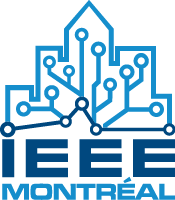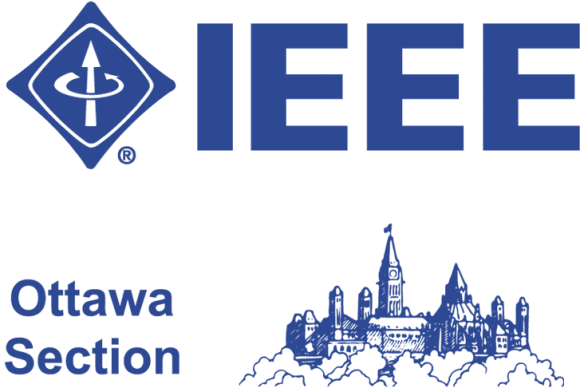LIVE PROGRAM
FRIDAY, 18 JUNE 2021
09:00am - 10:00am (EDT)
Panel: "How Mobile Edge Learning Will Impact the Future of Wireless Networking Architectures, Protocols, and Standards?"
Speakers & Panelists:
- Deniz Gündüz, Imperial College London, UK (Keynote Panelist)
- Julien Forgeat, Ericsson Research (Keynote Panelist)
- Shiqiang Wang, IBM T.J. Watson Research Center
- Daniel Desjardins, King’s Distributed Systems
Keynote 1: Distributed Machine Learning at the Wireless Edge
Speaker: Prof. Deniz Gündüz Imperial College London, UK
Abstract: IoT devices collect significant amount of data at the wireless edge, opening up new potentials for machine learning applications. Current approach to edge intelligence is to offload all the collected data to a cloud server for central processing. This approach is not sustainable considering the expected growth in the number of IoT devices and the traffic they generate. Moreover, it creates significant privacy risks for the users, and introduces delays that cannot be tolerated by most applications. The alternative is to bring the intelligence to the edge, by distributing both the training and the inference tasks across edge devices and servers. In this talk, I will present recent results on efficient distributed inference and training over wireless channels taking into account channel impairments as well as power and bandwidth limitations of wireless devices. This will involve bringing together novel communication and coding techniques with distributed learning algorithms.
Bio: Prof. Deniz Gündüz received the M.S. and Ph.D. degrees in electrical engineering from NYU Polytechnic School of Engineering (formerly Polytechnic University), Brooklyn, NY, in 2004 and 2007, respectively. Following his PhD, he served as a postdoctoral research associate at Princeton University, as a consulting assistant professor at Stanford University, and as a research associate at CTTC in Barcelona, Spain. ln Sep. 2012, he joined the Electrical and Electronic Engineering Department of Imperial College London, UK, where he is a Professor in Information Processing, and leads the Information Processing and Communications Laboratory (IPC-Lab). He is also a part-time faculty member at the University of Modena and Reggio Emilia, Italy, and has held visiting positions at University of Padova (2018-2020) and Princeton University (2009-2012). His research interests lie in the areas of communications and information theory, machine learning, and privacy. Dr. Gündüz is an Area Editor for the IEEE Transactions on Communications and the IEEE Journal on Selected Areas in Communications (JSAC). He also serves as an Editor of the IEEE Transactions on Wireless Communications. He is a Distinguished Lecturer for the IEEE Information Theory Society (2020-22). He is the recipient of the 2017 Early Achievement Award of the IEEE Communication Society – Communication Theory Technical Committee (CTTC), a Starting Grant of the European Research Council (ERC) in 2015, and the 2014 IEEE Communication Society Best Young Researcher Award for the Europe, Middle East and Africa Region. He served as a Symposium Co-Chair for the 2020 IEEE International Conference on Communications (ICC), and as a General Co-chair of the 2019 London Symposium on Information Theory (LSIT).
Keynote 2: Distributed Machine Learning Applications for Network Management on Mobile Edge
Speaker: Julien Forgeat, Artificial Intelligence, Ericsson Research
Bio: Julien Forgeat is an artificial intelligence principal researcher at Ericsson Research. He joined Ericsson in 2010 after spending several years working on network analysis and optimization. He holds an M.Eng. in computer science from the National Institute of Applied Sciences in Lyon, France. At Ericsson, Julien has worked on mobile learning, Internet of Things and big data analytics before specializing in machine learning and AI infrastructure. His current research focuses on the software components required to run AI and machine learning workloads on distributed infrastructures as well as the algorithmic approaches that are best suited for complex distributed and decentralized use-cases.
Panelist Bios
Shiqiang Wang, IBM T. J. Watson Research Center
Bio: Shiqiang Wang received his Ph.D. from the Department of Electrical and Electronic Engineering, Imperial College London, United Kingdom, in 2015. He joined IBM T. J. Watson Research Center in 2016 as a Research Staff Member, where he was also a Graduate-level Co-op in the summers of 2014 and 2013. In the fall of 2012, he was at NEC Laboratories Europe, Heidelberg, Germany. His current research focuses on theoretical and practical aspects of federated learning and mobile edge computing. Dr. Wang served as a technical program committee (TPC) member of several international conferences including IEEE ICDCS, IJCAI, WWW, IFIP Networking, IEEE GLOBECOM, IEEE ICC, as a reviewer for a number of international journals and conferences, and as an associate editor of IEEE Access (2017-2020). He received the IBM Outstanding Technical Achievement Award (OTAA) in 2019, multiple Invention Achievement Awards from IBM since 2016, Best Paper Finalist of the IEEE International Conference on Image Processing (ICIP) 2019, and Best Student Paper Award of the Network and Information Sciences International Technology Alliance (NIS-ITA) in 2015.
Daniel Desjardins, King’s Distributed Systems
Bio: Daniel, PhD, is the CEO of Kings Distributed Systems and Executive Director of Distributed Compute Labs. He is currently leading the team developing the Distributed Computer, a modern distributed computing platform built on web technology. He received his PhD in Physics, with specialization in computational electromagnetics in support of advanced propulsion systems. He also has 16 years of professional military experience, having served as a CC130H Hercules military search and rescue aircraft commander and Assistant Professor with the Department of Physics and Space Science at the Royal Military College of Canada. He was ranked among the top hundred candidates during Canada’s 2016 astronaut recruitment campaign.
PRESENTATION SESSIONS (ON-DEMAND):
Session 1: Fri 18 June, 12h30 PM, WS 21-1
Federated and Privacy Preserving Learning at the Edge
- Joint Communication-Learning Design for RIS-Assisted Federated Learning, Hang Liu (The Chinese University of Hong Kong, Hong Kong); Xiaojun Yuan (University of Electronic Science and Technology of China, China); Ying Jun Zhang (The Chinese University of Hong Kong, Hong Kong)
- Threshold-Based Data Exclusion Approach for Energy-Efficient Federated Edge learning, Abdullatif Albasser (Hamad Bin Khalifa University, Qatar); Mohamed M. Abdallah (Hamad Bin Khalifa University, Qatar); Ala Al-Fuqaha (Hamad Bin Khalifa University, Qatar); Aiman Erbad (Hamad Bin Khalifa University, Qatar)
- Federated Double Deep Q-learning for Joint Delay and Energy Minimization in IoT networks, Sheyda Zarandi (York University, Canada); Hina Tabassum (York University, Canada)
- UBLS: User-Based Location Selection Scheme for Preserving Location Privacy, Muneera Nawwar Alotaibi (Umm Al-Qura University, Saudi Arabia); Mohamed I. Ibrahem (Tennessee Technological University, USA); Waleed Alasmary (Umm Al-Qura University, Saudi Arabia); Dawood Al-Abri (Sultan Qaboos University, Oman); Mohamed M.E.A. Mahmoud (Tennessee Technological University, USA)
- Efficient and Privacy-Preserving Contact Tracing System for Covid-19 using Blockchain, Seham Alansari (Umm Al-Qura University, Saudi Arabia); Mahmoud M. Badr (Tennessee Technological University, USA); Mohamed M.E.A. Mahmoud (Tennessee Technological University, USA); Waleed Alasmary (Umm Al-Qura University, Saudi Arabia)
Session 2: Fri 18 June, 12h30 PM, WS 21-2
Mobile Edge Learning Applications
- A Decoupled Learning Strategy for MEC-enabled Wireless Virtual Reality (VR) Network, Xiaonan Liu (King’s College London, UK); Yansha Deng (King’s College London, UK)
- MEC-Based Evacuation Planning Using Variance Fractal Dimension Trajectory for Speech Classification, Christopher DeSantis (Manhattan College, USA); Ahmed Refaey (Manhattan College, USA & Western University, Canada)
- Distributed Multi-Agent Learning for Service Function Chain Partial Offloading at the Edge, Fahime Khoramnejad (University of Ottawa, Canada); Roghayeh Joda (University of Ottawa, Canada); Melike Erol-Kantarci (University of Ottawa, Canada)
- Re-configuration of UAV Relays in 6G Networks. Mohammad Javad-Kalbasi (University of Toronto, Canada); Shahrokh Valaee (University of Toronto, Canada)
- Deep Reinforcement Learning for Intelligent Computing and Content Edge Service in ICN-based IoV, Jingsong Li (Shanghai Jiao Tong University, China); Junhua Tang (Shanghai Jiao Tong University, China); Jianhua Li (Shanghai Jiao Tong University, China); Futai Zou (Shanghai Jiao Tong University, China)

















